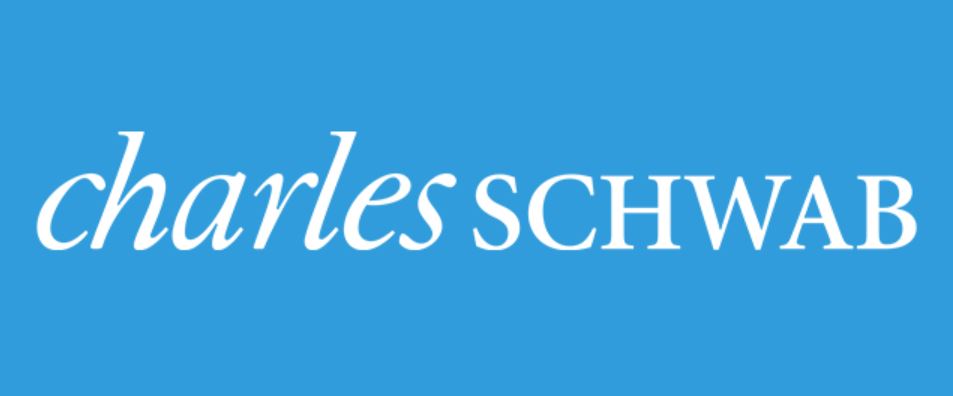





Many investors seek to open joint investment accounts to manage finances collaboratively. Joint accounts are common among married couples but also beneficial in other contexts, such as elderly investors including a sibling or adult child as a co-owner.
Fortunately, numerous brokerages now provide robust options for joint accounts with varied features and services to meet diverse investing needs.
Below is an updated list of the best brokerages offering joint accounts in 2025, highlighting key features, fees, and usability improvements.
| Brokerage | Account Minimum | Trading Fees | Best For | Mobile App Rating | Managed Option | Inactivity Fee |
|---|---|---|---|---|---|---|
| M1 Finance | None | Commission-free | Self-directed investors with automation | 4.7/5 | Yes (automated portfolios) | No |
| Interactive Brokers (IBKR Lite & Pro) | None (Lite), $0 to $10k (Pro varies) | Commission-free (Lite), low fees (Pro) | All levels, global access | 4.6/5 | No (self-directed) | No (Lite), May apply (Pro) |
| SoFi Active Investing & SoFi Money | None | Commission-free | Beginner investors, cash management | 4.5/5 | Yes (robo and human advisors) | No |
| Firstrade | None | Commission-free | Mutual fund traders | 4.4/5 | No | No |
| Betterment | None | 0.25% annual fee (Digital plan) |
Beginners seeking robo-advisors | 4.7/5 | Yes | No |
| TradeStation | None | Commission-free stocks & ETFs | Advanced traders | 4.5/5 | No | No |
| Personal Capital (Empower) | $100,000 minimum for advisory | 0.49%-0.89% advisory fee | High-net-worth investors | 4.3/5 | Yes | No |
| Charles Schwab | None | Commission-free stocks & ETFs | All investors, managed & self-directed | 4.7/5 | Yes (Intelligent Portfolios) | No |
| Fidelity | None | Commission-free stocks & ETFs | All investors, strong customer service | 4.7/5 | Yes (Fidelity Go) | No |
| Additional Rising Brokers | Varies | Commission-free mostly | Tech-savvy and younger investors | 4.5/5* | Limited managed options | Varies |
*Examples include Webull, Robinhood, Moomoo, and Public, which now support joint accounts with streamlined mobile-first experiences.

M1 Finance remains a top choice for joint accounts thanks to its unique “pie”-based automated investing platform, allowing clients to customize portfolios of up to 100 stocks and ETFs with commission-free trading.
Since the original post, M1 Finance has enhanced cash management by adding an APY boost on idle cash balances through partner programs, improving account yields for savers.
They continue to support fractional shares, no account minimums, and easy joint account setup options. The platform now offers improved educational tools and a mobile app updated with smoother portfolio rebalancing features.
M1 Finance fully supports Joint Accounts with joint tenants with rights of survivorship—ideal for spouses or trusted co-owners.

Interactive Brokers continues to be favored for its vast global market reach and advanced trade capabilities.
The IBKR Lite plan remains attractively commission-free for U.S.-listed stocks and ETFs, with no account minimums or inactivity fees, making it ideal for joint accounts held by casual or beginning investors.
The IBKR Pro tier offers access to an even broader selection of global stocks, options, futures, and fixed income, with competitive tiered pricing for active traders.
IBKR supports various joint account structures and now provides enhanced features such as real-time risk management tools and easy joint account tax reporting.
Cash balances earn competitive interest, and the Stock Yield Enhancement Program remains available, offering clients extra income opportunities.

SoFi offers a seamless integration of cash management and investing through SoFi Money and SoFi Active Investing, tailored for modern investors seeking simplicity, no fees, and mobile-first features.
SoFi Money still features high interest rates relative to major banks, more than 55,000 fee-free ATMs nationwide, and innovative cash back offers that rotate quarterly.
The investing platform supports commission-free stocks and ETFs, fractional shares, and joint accounts accessible to spouses, family, or business partners.
Additionally, with SoFi's hybrid advisory services, joint account holders can receive both robo and human financial advice.

Firstrade continues to appeal with its commission-free trades and over 15,000 mutual funds now available, increasing options for investors focused on mutual fund investing through joint accounts.
The platform is designed for self-directed investors and still does not offer managed account services, but expanded educational resources and a more intuitive mobile app have enhanced user experience.
Firstrade supports multiple joint account types, including joint tenants with rights of survivorship and tenants in common.

Betterment remains a leader in robo-advisory services, maintaining competitive fees of 0.25% annually for its digital plan.
Improved since 2020, Betterment now offers enhanced portfolio management for joint accounts, including tax loss harvesting, socially responsible investing options, and direct indexing for eligible accounts.
Customer support has expanded to include advisors via phone and chat, making Betterment an excellent choice for beginners and intermediates seeking hands-off portfolio management.

TradeStation continues to provide one of the most advanced trading platforms, tailored for serious self-directed investors.
Joint accounts are fully supported, with new pricing tiers that include commission-free stock and ETF trades, along with premium analytic tools and customizable dashboards that enhance joint account management.

After acquisition by Empower, Personal Capital’s investments and advisory platform improved integration with Empower’s broader wealth management services.
Joint account holders continue to benefit from a blend of automated algorithms and human advisors, with premium portfolio analytics and free financial planning tools that include net worth tracking, retirement planning, and budgeting resources.
Advisory fees range from 0.49% to 0.89%, with a $100,000 minimum, making Personal Capital ideal for high-net-worth couples or partners managing joint assets.

Charles Schwab remains a top-tier brokerage known for comprehensive joint account support, including features such as multiple user permissions and consolidated statements to simplify management.
The Schwab Intelligent Portfolios managed option has expanded to include socially responsible investing and tax-sensitive automated rebalancing.
They maintain competitive pricing with zero commissions on most trades and offer 24/7 customer support alongside a broad network of over 350 physical branches nationwide.

Fidelity continues to provide robust joint account options with no minimums and zero commissions on stocks and ETFs.
Its managed portfolio service, Fidelity Go, now offers more flexible account tiers and personalized advice suitable for joint accounts of any experience level.
Fidelity boasts a strong customer service record and over 300 local branches, offering in-person assistance nationwide.
Noteworthy new entrants and popular platforms in 2025 that support joint accounts or plan to include them soon include:
Crypto-focused platforms like Coinbase and Gemini currently do not widely support joint accounts but may offer multi-user access in the future for crypto asset management.
Most brokerages offer joint tenants with rights of survivorship (JTWROS) and tenants in common (TIC) account types. JTWROS automatically transfers the full account ownership to the surviving owner(s) upon a holder’s death, common for spouses. TIC divides ownership by percentages, suitable for business partners or siblings.
Joint accounts are accessible not only to married couples but also adult children, siblings, or trusted business partners, although identity verification and complete information for all account holders is required during application.
Broker-specific rules and restrictions may apply, including limits on the number of authorized users or types of assets held.
Top brokers provide joint account holders with convenient online portals and mobile apps featuring:
Joint owners should be aware of potential gift tax implications when transferring assets between owners. Income generated—including dividends and capital gains—is reported under the respective Social Security Numbers of each account holder, necessitating careful tax planning.
Consult a tax advisor to understand local rules and reporting requirements related to jointly held investments.
Choosing the right brokerage depends on your investing experience, asset types, fees, and customer support preferences. Consider the brokers above as reliable, up-to-date choices for managing joint investment accounts in 2025.